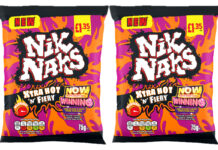Retailer groups say minimum wage increases have cost jobs and delayed store improvement projects

THE organisations representing independent and convenience sector food and drink retailers in Britain have told the Low Pay Commission that national minimum wage rates should be frozen in 2014.
And in the submission, by the Association of Convenience Stores and the Scottish Grocers’ Federation, to the Commission’s latest NMW consultation, the groups also warned that political intervention and pressure could damage the working of the minimum wage system.
The submission followed the publication of the ACS Local Shop Report and also drew on survey and focus group work with retailers.
It said as a result of NMW increases between 2011 and 2013 some 80% or more of retailers in the survey had cut paid hours and or decreased staffing levels in each of the years.
Similar numbers of retailers had changed staff pay structures over those years.
In each of the years, between 60% and 80% of the retailers had delayed business investment and expansion plans.
And more than 60% in each of the years reported that increases in NMW had affected their business competitiveness.
Some 63% of retailers surveyed had been required to lay people off in the last year and of that number some 85% said the lay-offs had been a result of increasing employment costs, including increases in NMW.
Many of the retailers made up the difference in their stores by working extra hours themselves. And in a majority of those cases that meant the effective hourly amount for the pay the retailers took out of their businesses was less than the NMW rate.
Looking ahead, and accounting for employer national insurance contributions and proposed new pensions costs, ACS reckons the actual cost of the national minimum wage in 2020 will be £8.14 an hour.
ACS asked retailers to recommend what action the Low Pay Commission should take on the 2014 NMW rate and 90% of those surveyed strongly agreed or agreed that NMW for 2014 should be frozen at its current rate.




















